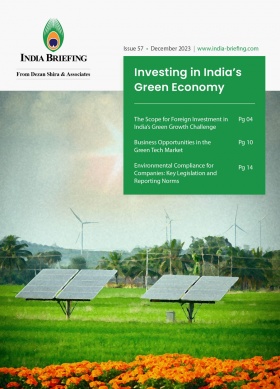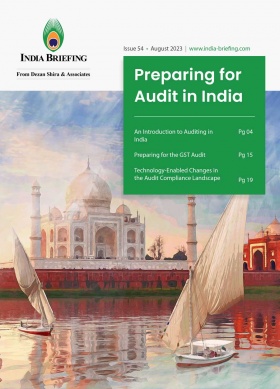India’s New Tax Compliance Law Impacting MSMEs: Section 43B(h) Explained
A new income tax regulation requiring companies to clear pending bills with MSME units within 45 days comes into effect from Assessment Year 2024-25. Not doing so will result in the increase in taxable income and tax for FY 2023-24 as deductions can only be claimed in the year of actual payment.
Many companies in India with unsettled dues to manufacturing ‘micro and small’ vendors will confront higher taxes in the Assessment Year 2024-25 due to the new Clause (H) inserted in Section 43B of the Income-tax Act, 1961 by the Finance Act passed in 2023. As the 2024 interim budget did not make any mention of this provision, the government has not provided any deferment.
The looming tax liability now has several companies, such as master distributors and traders, reassessing their bulk purchasing practices.
If payments due are not received by the MSME unit from the company within 45 days, section 43B (h) classifies the due amount as part of the company’s business income for the current financial year, subjecting it to taxation. Delaying the payment to the following year results in increased purchase costs as deductions cannot be claimed.
MSME classification criteria in India
|
Classification of Indian MSMEs on the Basis of Investment and Turnover Criteria |
||
|
Types of enterprises |
Investment in plant and machinery or equipment (upper limit) |
Annual Turnover (upper limit) |
|
Micro |
INR 10 million |
INR 50 million |
|
Small |
INR 100 million |
INR 500 million |
|
Medium |
INR 500 million |
INR 2.5 billion |
For more information, read our article: A Guide to MSMEs in India for Foreign Investors
What is the new tax compliance under section 43B?
The amended tax laws effective April 1, 2024, stipulates that any business entity in India, including companies, proprietorships, partnership firms, or LLPs, must ensure timely payments to registered ‘micro’ or ‘small’ enterprises suppliers. Failure to comply means the entity cannot deduct purchases in the year of acquisition but may only claim deductions in the year of actual payment. Consequently, without these deductions, taxable incomes and business taxes will increase.
Businesses are now concerned about the prospect of incurred expenditures being treated as business income, subject to taxation in AY’25.
India’s mercantile accounting system sees businesses typically book expenditures when they are incurred or accrued, which occurs after the receipt of goods and services, even if the actual payment occurs later. However, under the MSMED Act and section 43B(h) of the Income-tax Act, the time limit for payment to MSME enterprises is 15 days, or a maximum of 45 days if there is a written agreement between the buyer and the seller. Additionally, several other laws have outlined provisions for the timely payment of dues to such enterprises.
Hence, a company that settles outstanding dues (pending over 45 days as of March 31, 2024) and pays the vendor well after April 1, 2024, can claim the purchase as a deduction in the FY 2024-25 accounts but not in FY 2023-24. Limiting the credit period to 45 days in an environment where it typically extends from 90 to 180 days will necessitate a shift in business operations to expedite cash flow. As The Economic Times reports on this issue, the tax compliance may trigger a fundamental change in how money is managed and deals are negotiated in the trade sector in India. In what has become standard practice, master distributors typically receive goods from manufacturing MSME units and subsequently await payments from their customers, often small and medium businesses. This process often leads to delays in the eventual payments made to the MSME unit.
Section 43B (h): “any sum payable by the assessee to a MICRO or SMALL enterprise beyond the time limit specified in 15 of the Micro, Small and Medium Enterprises Development Act, 2006.”
Chapter V, MSME Development Act, 2006:
“Liability of buyer to make payment.
15. “Where any supplier supplies any goods or renders any services to any buyer, the buyer shall make payment therefor on or before the date agreed upon between him and the supplier in writing or, where there is no agreement in this behalf, before the appointed day:
Provided that in no case the period agreed upon between the supplier and the buyer in writing shall exceed forty-five days from the d2Y of acceptance or the day of deemed acceptance.” [‘Appointed day’ refers to the day immediately following the expiration of the fifteen-day period from the date of acceptance or the date of deemed acceptance of any goods or services by a buyer from a supplier.]
Date from which and rate at which interest is payable.
16. Where any buyer fails to make payment of the amount to the supplier, as required under section 15, the buyer shall, notwithstanding anything contained in any agreement between the buyer and the supplier or in any law for the time being in force, be liable to pay compound interest with monthly rests to the supplier on that amount from the appointed day or, ‘as the case may be; from the date immediately following the date agreed upon, at three times of the bank rate notified by the Reserve Bank.
Recovery of amount due.
17. For any goods supplied or services rendered by the supplier, the buyer shall be liable to pay the amount with interest thereon as provided under section 16.”
Challenges faced by MSME suppliers: Unintended consequences of legal reform
The government had enacted the law to alleviate the challenges faced by small businesses, which often endure delays of up to roughly six months in receiving payment for goods and services rendered, especially from large buyers.
Moreover, while the enforcement of the pertinent regulations varies, penalties can be imposed on specified companies for failing to file MSME-1 due to outstanding payments to MSME suppliers exceeding 45 days.
Suppliers have the option to file delayed payment claims against buyers, but many MSMEs are hesitant due to potential repercussions on future relationships. Given how trade and distribution networks run in India, it becomes very difficult for micro and small businesses to stand up to their large clients, especially if they are dependent on their orders. If the relationship has run afoul, it may have very real financial consequences for the MSME’s ability to be a going concern.
To avoid the implications of the new statute, companies and vendors are exploring various strategies to mitigate its impact, but some approaches may not withstand scrutiny from auditors and tax authorities in the future. These include tacit understanding between the distributor and vendor or direct actions, such as surrendering the MSME (micro, small, and medium enterprise) categorization of suppliers, reclassifying from ‘manufacturing entity’ to ‘trading entity’, not cashing checks before a specified date, or not responding to the company’s registered letter to the supplier asking about their MSME status.
Some vendors are voluntarily waiving their claims on interest for delayed payment by big buyers, per accounting firms speaking to the media. However, this specific approach may face challenges due to provisions in the MSME Development Act, where non-payment to registered MSMEs results in interest payments at triple the central bank rate.
Finally, several companies are reconsidering their bulk orders and assessing payment timelines to avoid higher tax liabilities.
Also read
- Key Considerations Before Selling Foreign Products in India
- Emerging Technologies Supporting Your India Retail Strategy: Location Analytics
- Free Trade Warehousing Zones in India
About Us
India Briefing is produced by Dezan Shira & Associates. The firm assists foreign investors throughout Asia from offices across the world, including in Delhi and Mumbai. Readers may write to india@dezshira.com for more support on doing business in India.
We also maintain offices or have alliance partners assisting foreign investors in Indonesia, Singapore, Vietnam, Philippines, Malaysia, Thailand, Bangladesh, Italy, Germany, and the United States.
- Previous Article Emerging Technologies Supporting Your India Retail Strategy: Location Analytics
- Next Article How India Plans to Achieve Cost-Effective Green Hydrogen Production








